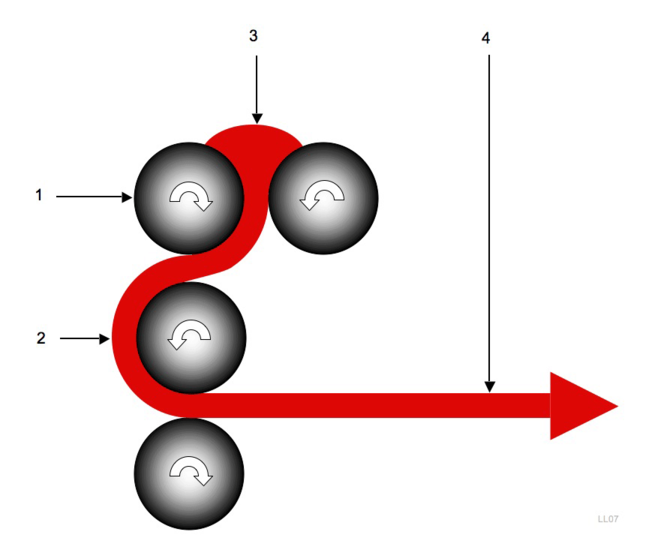Main Difference
The main difference between Calender and Calendar is that the Calender is a series of hard pressure rollers that produces a surface effect on fabric, paper, or plastic film and Calendar is a system of organizing days for social, religious, commercial, or administrative purposes.
-
Calender
A calender is a series of hard pressure rollers used to form or smooth a sheet of material such as paper or plastic film. In a principal paper application, the calender is located at the end of a papermaking process (on-line). Those that are used separately from the process (off-line) are also called supercalenders. The purpose of a calender is to make the paper smooth and glossy for printing and writing, as well as of a consistent thickness for capacitors that use paper as their dielectric membrane.
-
Calendar
A calendar is a system of organizing days for social, religious, commercial or administrative purposes. This is done by giving names to periods of time, typically days, weeks, months and years. A date is the designation of a single, specific day within such a system. A calendar is also a physical record (often paper) of such a system. A calendar can also mean a list of planned events, such as a court calendar or a partly or fully chronological list of documents, such as a calendar of wills.
Periods in a calendar (such as years and months) are usually, though not necessarily, synchronised with the cycle of the sun or the moon. The most common type of pre-modern calendar was the lunisolar calendar, a lunar calendar that occasionally adds one intercalary month to remain synchronised with the solar year over the long term.
The term calendar is taken from calendae, the term for the first day of the month in the Roman calendar, related to the verb calare “to call out”, referring to the “calling” of the new moon when it was first seen. Latin calendarium meant “account book, register” (as accounts were settled and debts were collected on the calends of each month). The Latin term was adopted in Old French as calendier and from there in Middle English as calender by the 13th century (the spelling calendar is early modern).
-
Calender (noun)
misspelling of calendar
-
Calender (noun)
A machine, used for the purpose of giving cloth, paper etc., a smooth, even, and glossy or glazed surface, by cold or hot pressure, or for watering them and giving them a wavy appearance; it consists of two or more cylinders revolving nearly in contact, with the necessary apparatus for moving and regulating.
-
Calender (noun)
One who pursues the business of calendering.
-
Calender (noun)
One of a wandering, mendicant Sufic order of fantastically dressed or painted dervishes, founded in the 13th century by an Arab named Yusuf.
-
Calender (verb)
To press between rollers for the purpose of making smooth and glossy, or wavy, as woolen and silk stuffs, linens, paper etc., as in a calender.
-
Calendar (noun)
Any system by which time is divided into days, weeks, months, and years.
“The three principal calendars are the Gregorian, Jewish, and Islamic calendars.”
-
Calendar (noun)
A means to determine the date consisting of a document containing dates and other temporal information.
“Write his birthday on the calendar hanging on the wall.”
-
Calendar (noun)
A list of planned events.
“The club has a busy calendar this year.”
-
Calendar (noun)
An orderly list or enumeration of persons, things, or events; a schedule.
“a calendar of bills presented in a legislative assemblly;”
“a calendar of causes arranged for trial in court”
-
Calendar (noun)
An appointment book (US), appointment diary (UK)
-
Calendar (verb)
To set a date for a proceeding in court, usually done by a judge at a calendar call.
“The judge agreed to calendar a hearing for pretrial motions for the week of May 15, but did not agree to calendar the trial itself on a specific date.”
-
Calendar (verb)
To enter or write in a calendar; to register.

